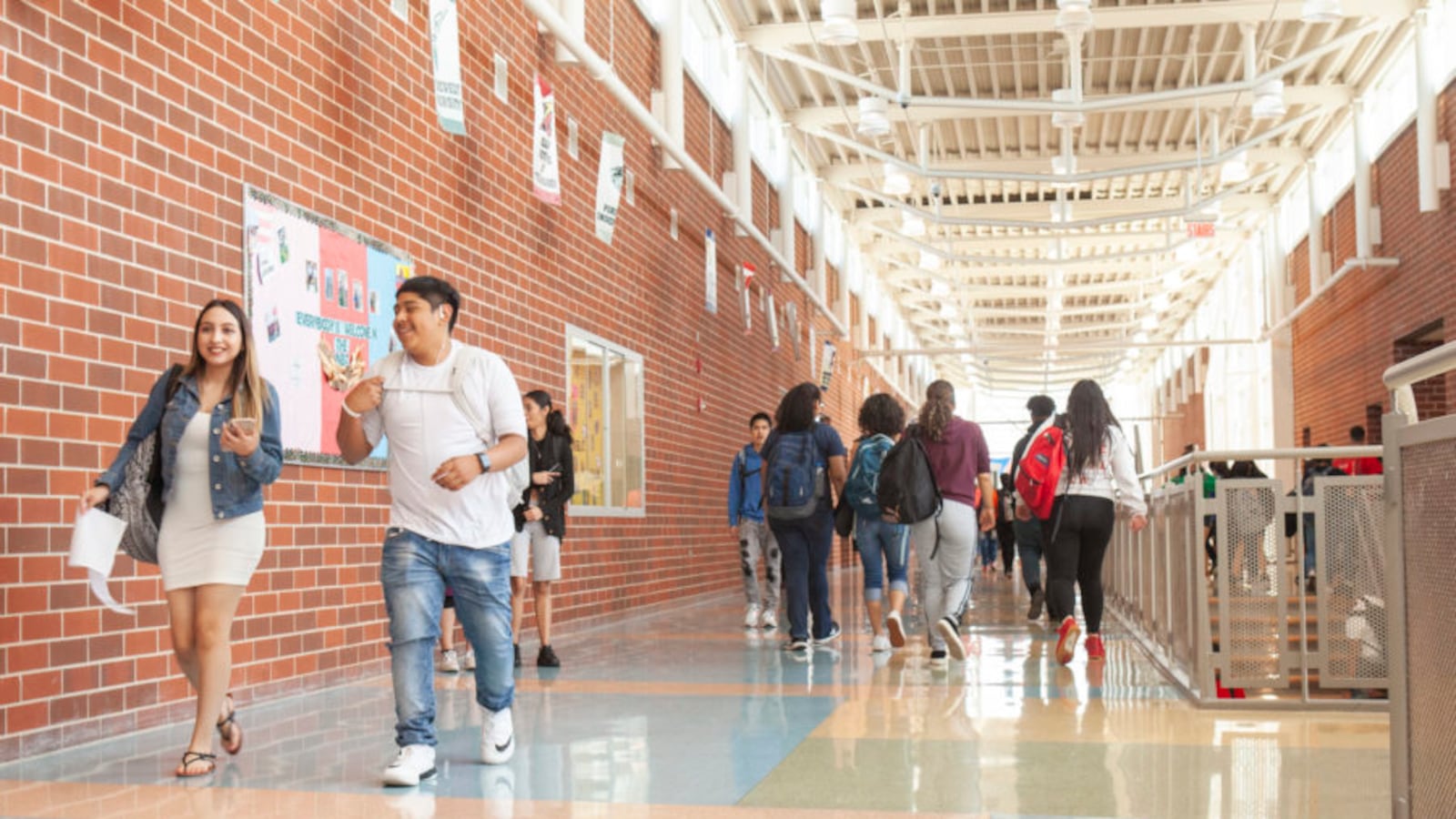Schools across the state of Illinois struggle to recruit bilingual educators, but new legislation could help.
State Representative Aaron Ortiz and Illinois Congressman Jesús “Chuy” García, both Democrats from Chicago, are backing bills that would expand financial aid for bilingual high school students who intend to go into teaching. Ortiz’s bill would establish a scholarship program in Illinois, while Garcia’s bill would expand funding for federal scholarships.
“In order to address the teacher shortage facing Illinois, we must invest in our young people, particularly our youth of color, to remove any barriers that may prevent them from pursuing a career in education,” Ortiz said in a news release. “This legislation is ultimately about ensuring that our local schools are able to hire educators that can connect with their students and the neighborhoods they are in.”
The State Seal of Biliteracy Grant, backed by Ortiz, would award scholarships to high school graduates who are highly proficient in English and one or more other languages and plan to teach in Illinois. Students would be given $5,000 per year for up to four years, according to the release.
Though $5,000 per year won’t cover tuition at most universities, low-income students may also be eligible for other scholarships, including the state financial aid programs and the federal Pell grant, said Joshua Kaufmann, the executive director of Teach Plus, an organization that advocates for teachers in public policy.
Despite efforts to diversify Illinois’ teaching corps, 83% of Illinois teachers are white, a figure that has barely budged in the last 15 years, according to Chalkbeat analysis of data released last fall on the 2019 Illinois Report Card. Less than half the state’s student population is white.
“We are dealing with a national teacher diversity and shortage crisis,” he said, “a crisis that leaves our children academically and socially behind.”
In December, Garcia introduced legislation that would increase federal scholarships to students who commit to teaching in a high-need field, such as bilingual education, in a school in a high-poverty area. The bill would increase the amount awarded to $8,000 per year and would prevent particular cuts to the program, he said.
Garcia also is seeking to simplify the application process for federal aid for students from low-income families.
Having bilingual teachers helps improve learning, said Eileen Considine, principal of Columbia Explorers Academy, located in Brighton Park.
“When our kids come in many are bilingual students,” Considine said. “They need to feel comfortable and understand whether it’s in Spanish or English. … Also, seeing that teachers are just like them, they see the possibilities for them in the future.”

